#community scenes
Text
when a powerful figure is reduced to kneeling. when the lord is forced to bow. when the exile stumbles into an unwelcoming bar. when the “beast” is chained by their horns. when a god is dragged behind their enemy’s chariot, a captive and trophy. when the loyal “guard dog” character is muzzled and the silver-tongued thief falls silent in horror.
that’s the shit
it’s about the contrapasso. the reversal of roles and the sudden, plunging terror of being unable to hide.
#did i write a scene with unknown characters where this happens#mmm#maybe#whump#whump writing#whumpblr#whump prompt#whump ideas#whump community#whump prompts#troy talks#whump scenario#thoughts?
13K notes
·
View notes
Text
it's always "i don't judge !!" until a person is a therian or just nonhuman in general, their religion is something they don't agree with or don't see as a "real or valid" religion [like satanism or autotheism], they identify with xenogenders and use "weird" pronouns, they have a "cringy" style like emo, scene, goth, or harajuku fashion, they're disabled, they act childish and age regresses, they have extreme intrusive thoughts, they have "odd" interests, they don't have proper hygiene because of poor mental health, their identity "doesn't make any sense", they're "too fat" or "too skinny", or they're just "not attractive". stop cherry picking, you can't claim "you don't judge" when you can't accept these people. be better.
#therians#therianthrope#therianthropy#therian#therian community#therian blog#nonhuman community#nonhumanity#nonhuman#non human#disabled#disabilties#disability#satanism#satanist#emo#scene#harajuko fashion#goth#intrusive thoughts#mental health#identity#otherkin community#otherkin blog#otherkins#otherkin#alterhumanity#alterhuman#xenogender#xenogenders
3K notes
·
View notes
Text
a list of 100+ buildings to put in your fantasy town
academy
adventurer's guild
alchemist
apiary
apothecary
aquarium
armory
art gallery
bakery
bank
barber
barracks
bathhouse
blacksmith
boathouse
book store
bookbinder
botanical garden
brothel
butcher
carpenter
cartographer
casino
castle
cobbler
coffee shop
council chamber
court house
crypt for the noble family
dentist
distillery
docks
dovecot
dyer
embassy
farmer's market
fighting pit
fishmonger
fortune teller
gallows
gatehouse
general store
graveyard
greenhouses
guard post
guildhall
gymnasium
haberdashery
haunted house
hedge maze
herbalist
hospice
hospital
house for sale
inn
jail
jeweller
leatherworker
library
locksmith
mail courier
manor house
market
mayor's house
monastery
morgue
museum
music shop
observatory
orchard
orphanage
outhouse
paper maker
pawn shop
pet shop
potion shop
potter
printmaker
quest board
residence
restricted zone
sawmill
school
scribe
sewer entrance
sheriff's office
shrine
silversmith
spa
speakeasy
spice merchant
sports stadium
stables
street market
tailor
tannery
tavern
tax collector
tea house
temple
textile shop
theatre
thieves guild
thrift store
tinker's workshop
town crier post
town square
townhall
toy store
trinket shop
warehouse
watchtower
water mill
weaver
well
wind mill
wishing well
wizard tower
#worldbuilding#setting prompts#writer resources#writing inspiration#writing prompts#scene settings#writing reference#writing ideas#prompt list#creative writing#writing community#writer prompts#writing tips#world#fantasy world#fantasy worldbuilding#high fantasy#world building#epic fantasy#writing fantasy
2K notes
·
View notes
Text
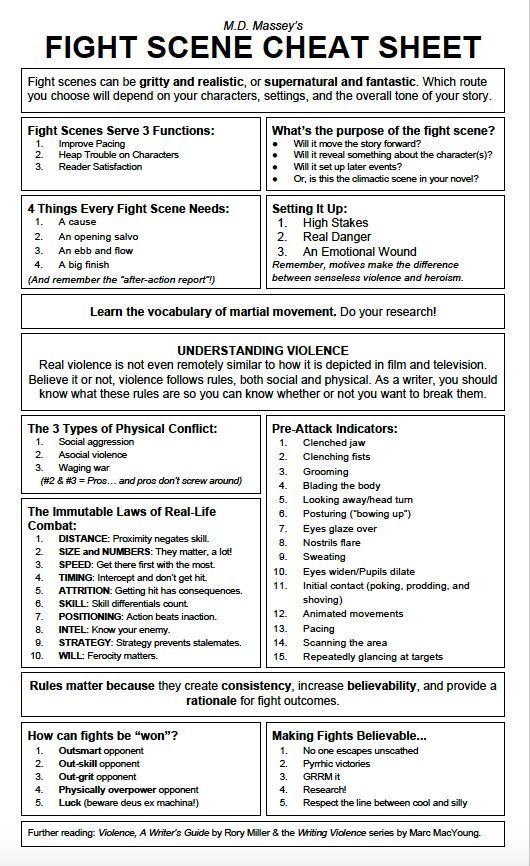
Writing tool for your fight scenes.
#writing fight scenes#writing#writers#writers on tumblr#writing community#writerscommunity#writer things#writerslife#novel writing#fight scene#writing tips#action#writers and readers
3K notes
·
View notes
Text
“I can tell TV from real life, Jeff. TV has structure, logic, rules, and likeable leading men. In real life, we have this. We have you” is still one of the most METAL fucking lines in the entire series like??? abed just gagged him like that??? in front of EVERYONE??? insane. I’m still not over it. goddamn
#top 10 most savage anime moments#I honestly don’t watch this episode THAT much#just bc jeff and britta ‘pretending’ to be in love and annie getting jealous is physcially upsetting for me#but the whole wedding scene is peak cinema#britta’s marryin britta’s marryin jeffrey wingerrr has been on loop in my head for weeks#and betty white is there lmfao kinda funny#ANYWAY#he humbled jeff so fast like GET HIS ASS‼️#community#nbc community#community nbc#abed nadir#jeff winger#abed’s uncontrollable queue-mas
3K notes
·
View notes
Text
Scene Transitions
Transitioning between scenes is something that you’ll have to do a lot. A good scene transition blends seamlessly into the next so we hardly notice it occurring—or it stands out in order to heighten an emotional impact.
I remember teachers saying, “transitions should blend seamlessly” to me in school without ever explaining how to do that, or what it looks like. The good news is, you’ve probably read so many books and consumed so much media that you’re already subconsciously transitioning your scenes. If you’re struggling, though, here’s what to watch out for:
1. The emotion ends off and begins at the same place.
This isn’t necessarily a hard rule, but it certainly helps maintain a sort of flow to the work, and asks a lot less from your readers than putting them through an emotional rollercoaster. This counts whether it’s transitioning from the same POV or different ones.
For example, if your character is being chased by the police and the scene cuts off without knowing what happens to them, the next scene needs to begin in this heightened sense of urgency and anxiety.
However, if your character is being chased by police and dives unnoticed into their hideout, the next scene should begin within this sense of relief. From here, you can take it wherever you want—just maintain a consistency between chapter cuts, POVs, or other time/place skips.
2. Finish what you start
Unless you’re intentionally keeping the audience in the dark about something (which would require at least some acknowledgement that there are answers, they just aren’t being revealed), you should finish what one scene starts.
Say your previous chapter ends off with the character finally reaching the end of the line for the super scary haunted house attraction. The next should probably begin with them getting to enter the house. If it begins the next day, we’ll be so caught up in the missing time and the obvious lack of answers surrounding the haunted house it’ll take us completely out of the scene and make a notable cut.
An example of a story that does this notable cut really well is ‘A Face Like Glass’ by Frances Hardinge, in which nearing the end, Hardinge inserts a page that playfully acknowledges the complete jump in time and space without revealing anything to the readers about why it’s there, leaving them to discover later on what occurred in that space.
I wish I could quote it exactly but I don’t have the book with me. If anyone does, please reblog this with the page! You’ll know the one I’m talking about.
3. Keep it the same
Don’t switch to a new POV in the middle of the story when you’ve never seen it before unless intentionally making a point. Do transition your scenes however you’d like, but maintain consistency throughout the story. That way, if you ever need to make a point, you can break all the rules you’ve followed to really hammer home the impact.
Good luck!
#writing#writers#writing tips#writing advice#writing inspiration#creative writing#writing community#books#film#filmmaking#screenwriting#novel writing#fanfiction#writeblr#scene transitions#transitioning between scenes
3K notes
·
View notes
Text
Got bored or som 🤷🏽 (Au belongs to @somerandomdudelmao)
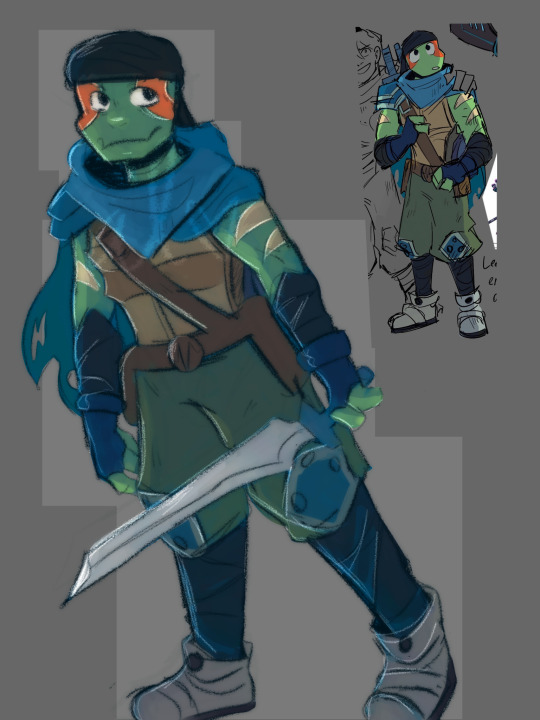
#art#fanart#rise of the tmnt#scene redraw#rottmnt leo#rottmmt#rise of the teenage mutant ninja turtles#rise leo#teenage mutant ninja turtles#tmnt#cass apocalypse au#cass apocalyptic series#cass apocalypse fanart#digital fanart#digitalart#artist#artwork#i am still not the best at drawing turtles so i am really impressed :3#object show community#digital art#artists on tumblr
1K notes
·
View notes
Text

#body piercing#tattoos and piercings#body mod community#body modifications#body modification#bmezine#pierced#boys with piercings#alternative#alt aesthetic#eyebrow piercing#emo girl#emo scene#emo#emo boy#septum piercing#septum#snakebites#00s#goth#gothgoth#angel bites#body modifactions#scarification
2K notes
·
View notes
Text


my creation
#cas.txt#destiel#dean#cas#dean winchester#castiel#destiel confession meme#confession#confession scene#nov 5 2020#spn#supernatural#lgbt community has hijacked me and made me one of their icons#mlp#happy pride#lesbian rainbow dash meme#hi my phone almost died making this
3K notes
·
View notes
Text
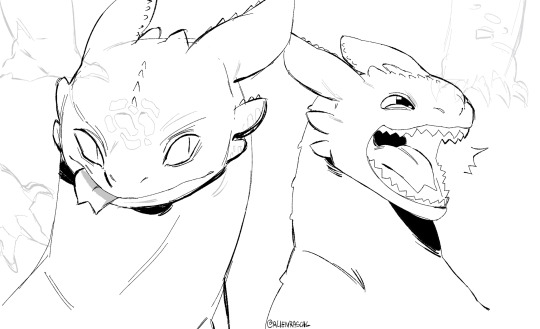
Small Toothless sketches to try and get back in a drawing mood
#httyd#how to train your dragon#toothless#httyd movie#digital sketch#I always struggled to translate toothless onto my drawings of him#as a kid I was apart of a kind of ‘scene nightfuries’ da community and it positively pushed me to try#funny dragon#digital art#artistsontumblr#my art
842 notes
·
View notes
Text

THoaM Issue 9 PAGE 7
NEXT PAGE –>
<– PREVIOUS PAGE
new to thoam or want to reread the comic but its really awkward to do on tumblr mobile? The official website has got you covered!
#thoam#issue 9#im sooo proud of this lighting#and in the next pages to come#im really going all out#makes u realize im passionate abt outdoor scenes and not so much indoor askjfhsakjf#FUCK I JUST REALIZED I FORGOT HIS TOP OP MARKINGS IN THE BOTTOM PANEL#a big loss for the transmasc community
487 notes
·
View notes
Text

1K notes
·
View notes
Text


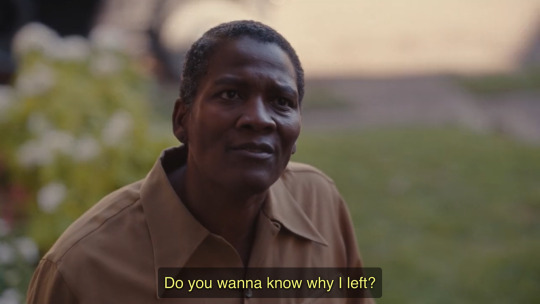




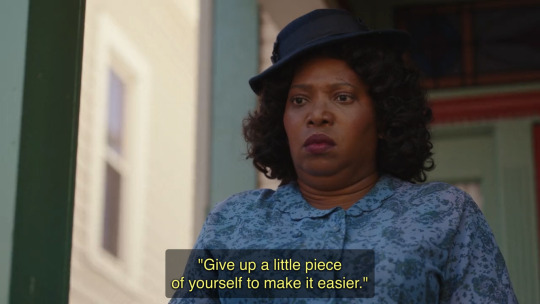

A League of Their Own (2022-)
#this scene is very important to me#i know every line by heart#a league of their own#aloto#transgender#lgbtqia+#gay cinema#lgbt pride#queer community#lgbtsource#gay film#lgbt film#gay movie#wlw#transmasc#uncle bertie#bertie hart#non binary#lea robinson
2K notes
·
View notes
Text
Battery Dew
This is Battery Dew and was my first ever furby commission which was so exciting. The person wanted a scene and gyaru fashion inspired furby with a color palette of pink and green

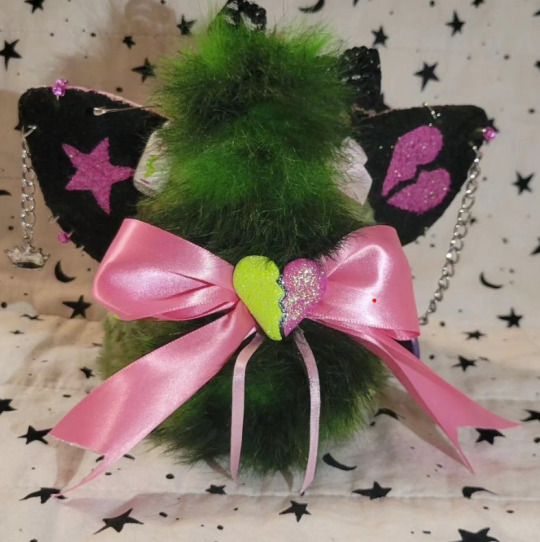
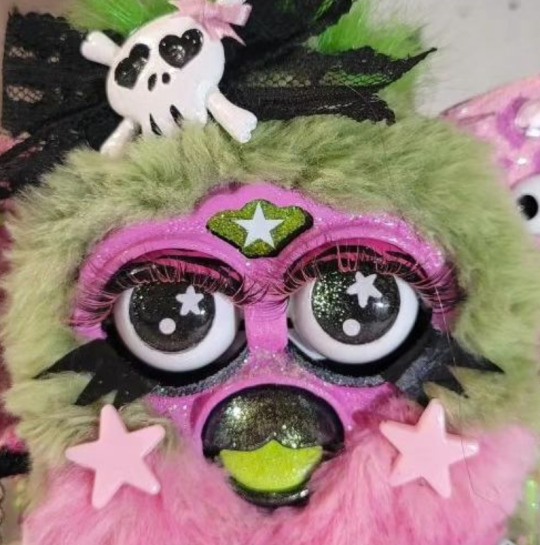

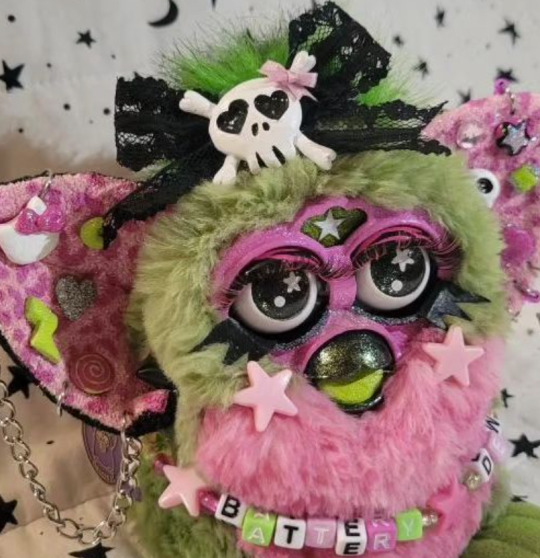

#furby#furblr#furbies of tumblr#furby fandom#custom furby#safe furby#furby 1998#furby 1999#furby mod#furbies#ooak furby#scene#scene furby#furby community
597 notes
·
View notes
Text
Ways to Skip Time In Your Stories
Finding ways to skip time in stories can feel challenging. Writers often worry it’ll make their work feel too amateur or negatively affect their pacing.
The truth is that every author includes ways they skip time to maintain their pacing and plot. Check out a few ways to do it with confidence.
1. Start a New Chapter
Yes, it’s really that simple. Go back to your favorite books and note how each chapter ends. You’ll likely find a few of these tricks that transition the story in ways that match the story’s flow.
Ideas to End a Chapter
The protagonist goes to sleep (likely overused, but practical)
The characters end a conversation
One character informs another of a plot twist
Unexpected action occurs, like a car crash
2. Emphasize the Season
You don’t need to tell the reader exact dates or hours to pass the time. You could mention the season instead.
If a scene or chapter ends in the summer and you need your plot to start in winter, make your protagonist mention something about the leaves changing color and giving way to snow before your action picks up again. It will only take a sentence or two, so it’s also an effective method for short stories.
3. Visualize a Movie Montage
Imagine watching a movie about a character who goes on a summer adventure. They backpack through Europe, but they have to take a flight to get there.
You likely wouldn’t see them standing in airport security lines, napping in a terminal or watching a full movie on their flight to their destination. Instead, you’d get a montage of them driving to the airport with a shot of their plane cruising over the open ocean.
Writers can do the same thing, minus the soundtrack in the background. Describe how your character got to their destination when a new chapter or scene starts. Your readers will get the general idea and appreciate getting straight to the plot that made them pick up your story in the first place.
Here are a few ideas to do this in just a few sentences:
One delayed flight and a bad airplane dinner later, I was walking out of the Amsterdam-Schiphol Airport with an aching back and excited heart.
My trip began with the perfect flight. I got an entire row of seats to myself, which made napping through the trip much easier. A flight attendant roused me awake when it was time to land. I couldn’t believe how fast I’d arrived in Athens that quickly.
My flight was just long enough to catch up on the movies I’d been missing over the last year. The landing gear bounced along the runway in Rome just as the Barbie credits started flashing across my iPad.
4. Showcase Some Confusion
Sometimes we aren’t aware of what time it is. We only know time has passed. That might be the best way to make time pass in your story if your protagonist gets confused, caught by surprise, or otherwise discombobulated.
These are some examples:
I woke up with a bad taste in my mouth. The sun was already peaking in the clear blue sky. How long had it been since my explosive video call with my ex the night before?
The time machine landed with a thud that knocked me to the ground. The control panel exploded in shimmering sparks. What year was it?
Working a double shift always left my brain spinning. I left work, walking across the parking lot with only the stars watching my back. I could feel the hours aching in my feet, but didn’t care what time it really was. I just needed to sleep.
5. Employ a Phrase
There are many quick phrases you can use to make your time jumps immediately clear. Consider using a few of these when you feel creatively stuck:
Later that morning
A few weeks later
After months of trying
Six hours later
The following week
As the store closed for the night
-----
There are many other ways to make time pass in a story. Starting with these could help you figure out the best way to move your story forward without disrupting its pacing.
Remember, you’re in control of your story at all times. There’s always a way through creative challenges if you take a deep breath and try something new.
#writing chapters#writing scenes#chapter writing#scene transitions#chapter transitions#writing transitions#writeblr#writing advice#writing tips#writers of tumblr#creative writing#writing#writing community#writing inspiration#writing help#writing resources
1K notes
·
View notes
Text




𝗁𝖾𝖺𝗋𝗍𝗌 𝗂𝗇 𝗍𝗋𝖾𝖾𝗌
#goth#dark coquette#gothic#grunge#girlblogging#im girlblogging#girlblogger#this is a girlblog#indie#dark grunge#coquettecore#coquette#bdsmblog#bd/sm community#alt community#alt#alt ootd#altgoth#alternativegoth#alt goth#emo aesthetic#2000s emo#altgirl#alternative goth#alternative#2000s scene#emo scene#emo girl#nature#art
438 notes
·
View notes